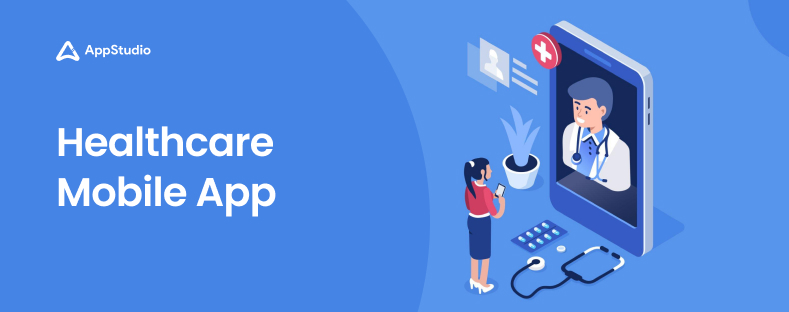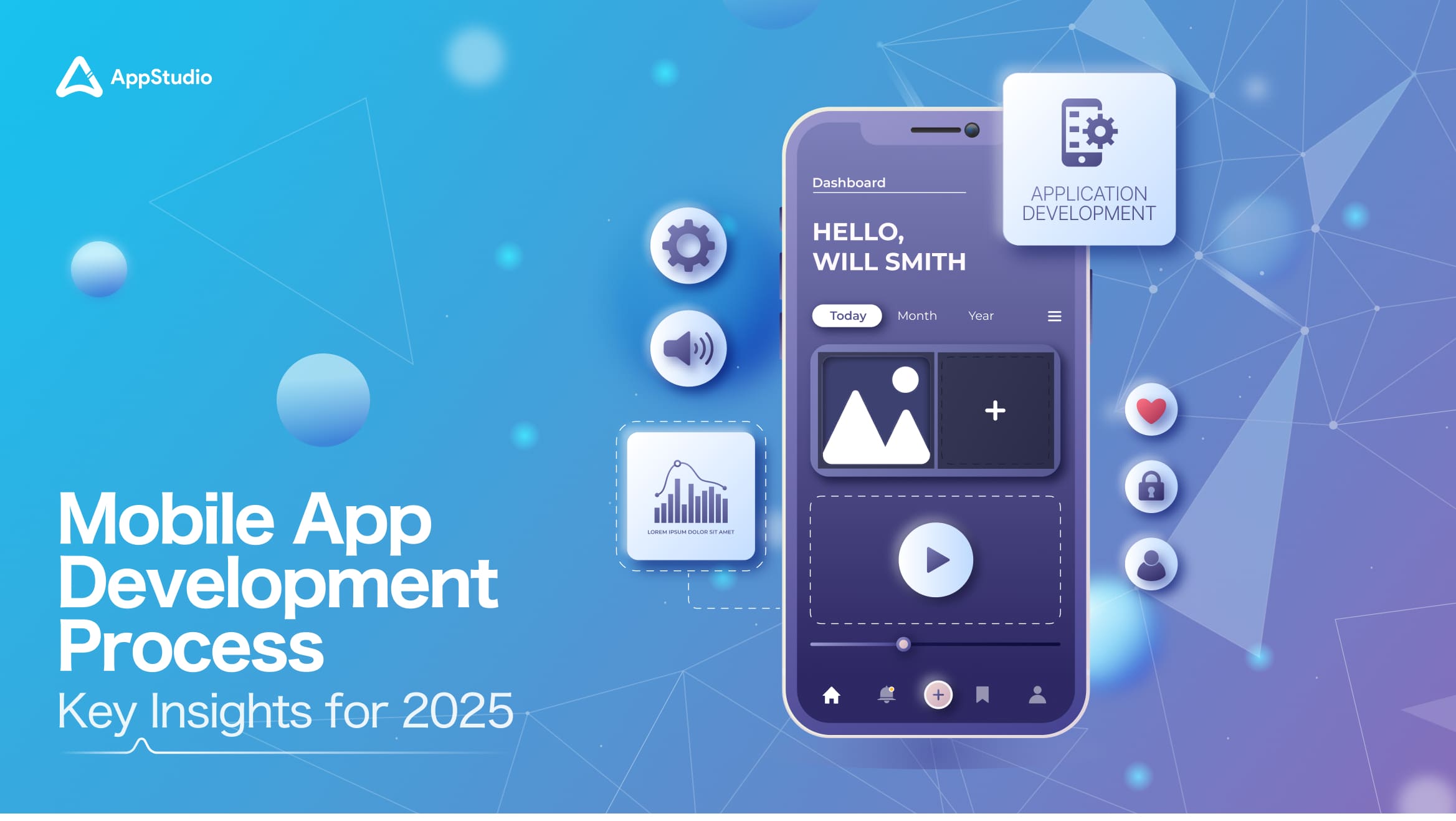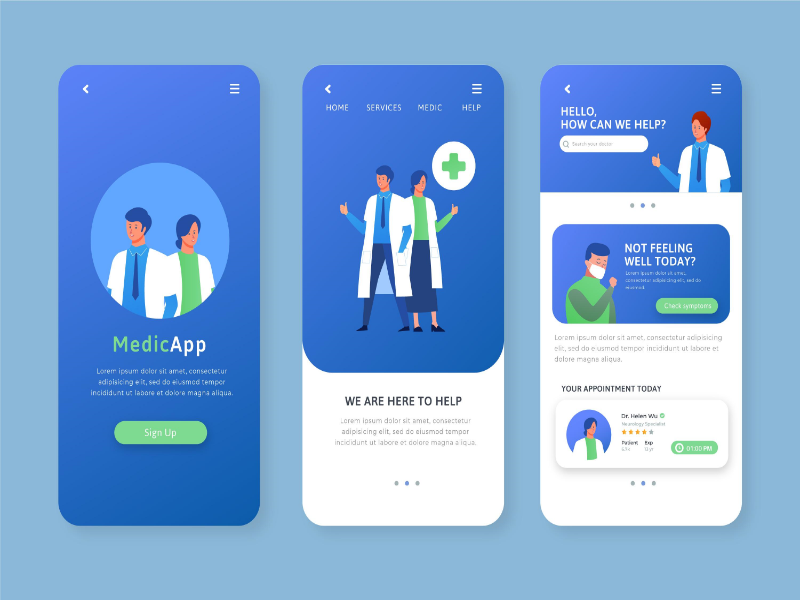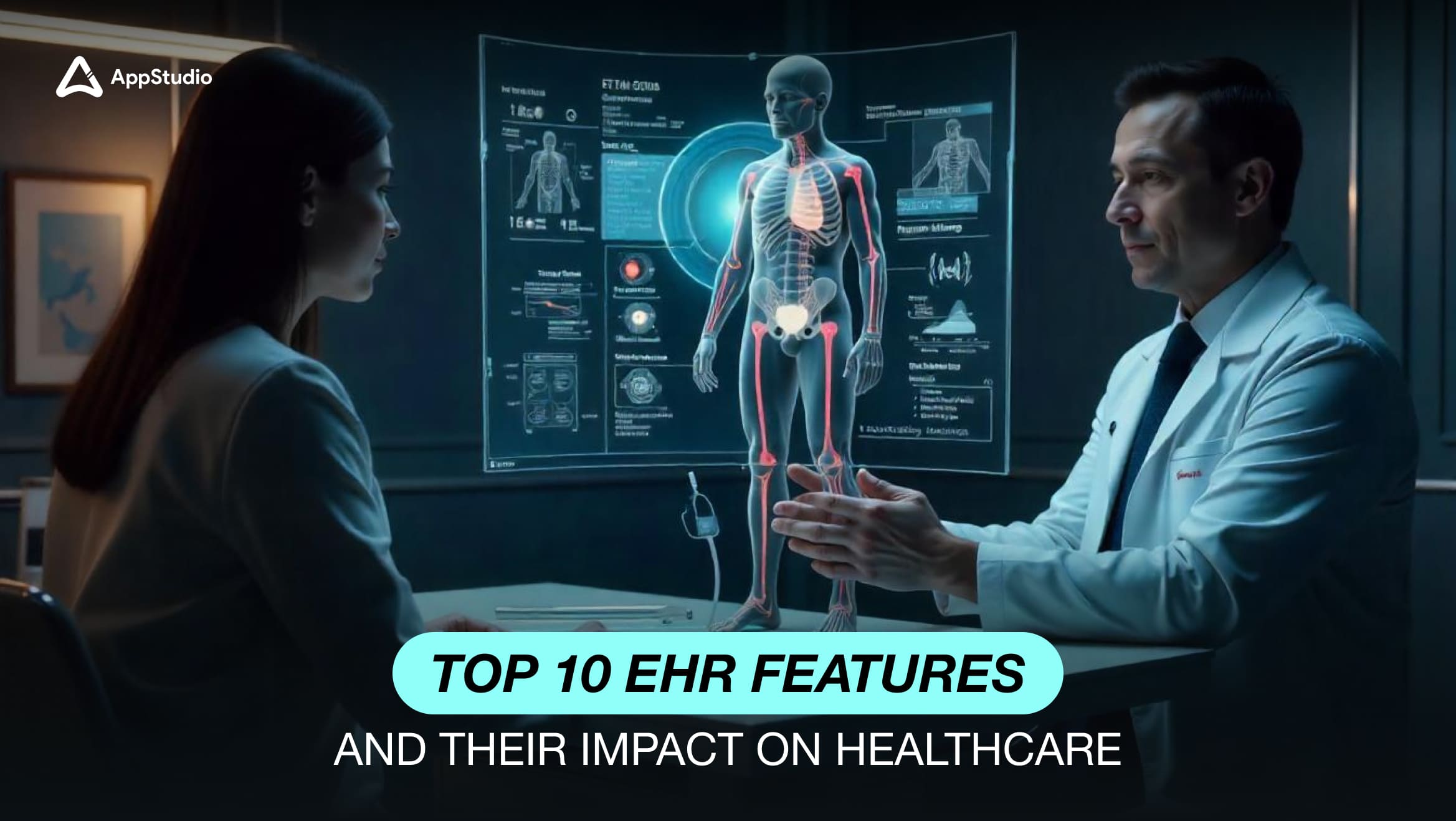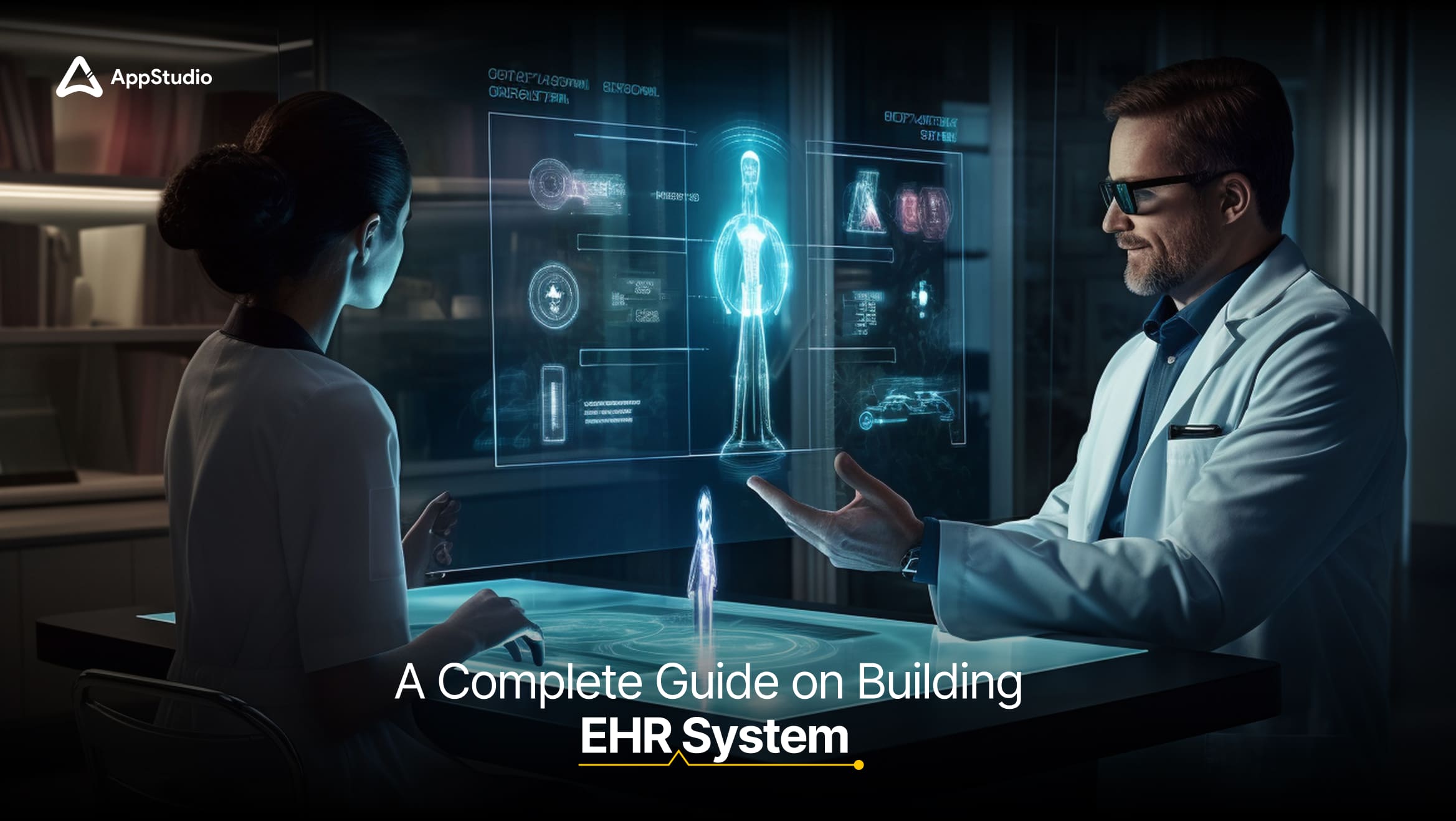Did you know that an investment into a healthcare app provides a massive 300% ROI, on average?
Healthcare apps such as remote patient monitoring (RPM), health education, online appointments, doctor discovery platforms (DDP), and more are in huge demand, and they are providing insane ROI for investors.
In fact, as per leading data analytics portal Statista, it was found that the healthcare mobile application market will cross the $300 billion mark by 2025, as more and more Internet users are opting for mobile app-based healthcare services, all across the world.
In Canada, the market for mobile-based healthcare services is expanding at an astonishing pace and is reported to be growing at more than 11% CAGR, which is one of the highest in the world. By the time 2026 ends, healthcare mobile applications will attract more than $3 billion in revenues, surpassing other sectors by a huge margin.
If you are an SME or a startup and wish to design, develop and launch a healthcare mobile app, then this blog is for you. We at AppStudio are market leaders in conceptualizing and developing path-breaking healthcare mobile apps, and today, we will share our secrets of the trade.
So, let’s begin!
Step 1: Which Problem Your Healthcare App Will Solve?
To start the process of developing a healthcare mobile app, first identify the problem which you will solve with this platform:
- How will your app solve the pain points of your audience?
- Does your market need this app right now?
- Can this app provide better features than your competitors?
Deep, insightful, and thorough market research is needed to find out the USPs or the differentiators of your healthcare mobile app, and this brings us to the 2nd step, related to the audience.
Step 2: Decode Your Target Audience
Now, this step will form the foundation of your healthcare mobile app development vision, because ultimately, it’s the customers/users who will be using your app.
Categorized under Market Segmentation, this step involves decoding your target audience, and understanding why they will install your app in the first place:
- Who is your target audience?
- What are their pain points related to availing healthcare services (price, location, features, etc?)
- How tech-savvy is your target user?
- Which devices do they use?
- What do they expect from a healthcare mobile app?
And more questions. We normally create a persona of the target user and literally walk into their shoes to understand and decode them.
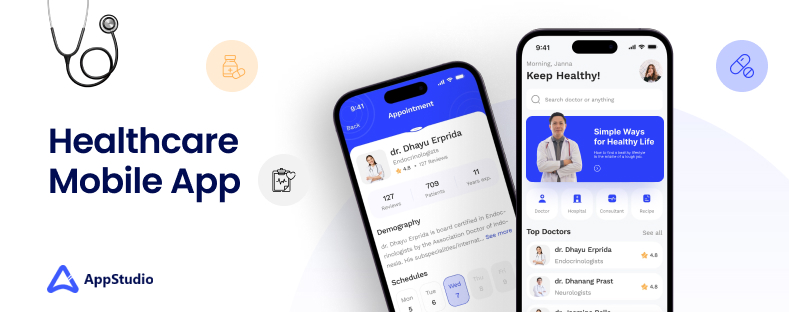
Step 3: Which Type Of Healthcare Services Will Your App Provide?
Now, based on the outcome and insights from the first two steps, let’s finalize the type of healthcare app you wish to launch.
Some popular examples can be:
- Remote Patient Monitoring App
- Health & Wellness App
- Medical Record Storage App
- Healthcare Training App
- Ambulance Booking App
- Medication Tracker App
- Fitness App
- Yoga App
- Telemedicine/TeleHealth App
- Doctor Appointment App
- Diet Tracking App
- Clinical Assistance App
- Prescription App
- Women/Men Focussed Healthcare App
And more.
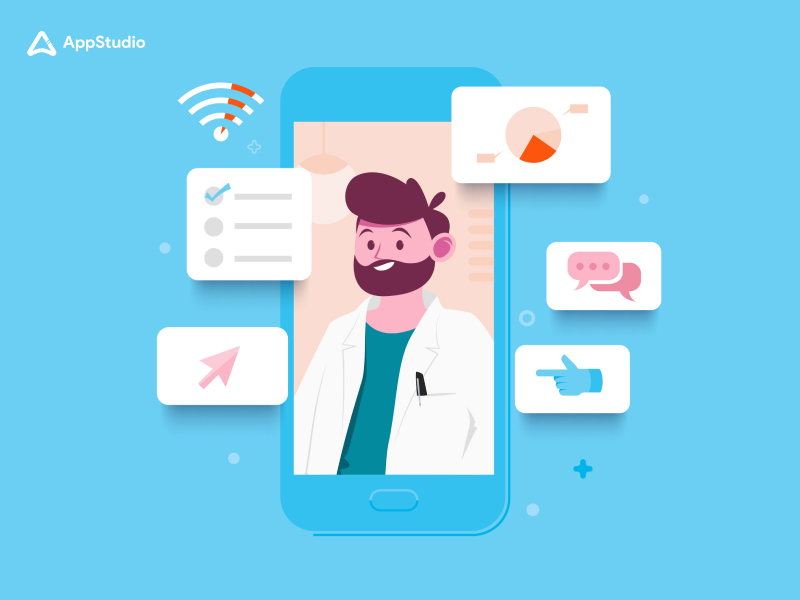
Step 4: Finalize The Features Of The Healthcare App
Now, at this stage, we understand the market demand, have decoded the target audience and finalized the category/type of the healthcare app.
The next step is finalizing the features of the mobile app, which will help the healthcare app developers to create the framework and the design structure.
Some popular, and in-demand features of the healthcare app include:
- Real-time appointment scheduling
- Real-time communication (for example between patient-doctor)
- Appointment Scheduling
- Chat and Messenger features
- Geolocation (helps both patient and doctors/hospital admins to find out the location)
- Tracker (for example, tracking the progress of the patient, or monitoring medicine intake)
- Security & Privacy (very critical and important, to comply with Govt rules and regulations)
- Push Notifications
- Cross-Platform Capabilities (so that the users can access the app across all devices, seamlessly, without losing any information)
- Data Analytics (to monitor the performance, user experience, and traffic)
- 3rd Party Integrations
And more.
Step 5: Advanced Technologies For Healthcare App
Some of the advanced & futuristic technologies that we at AppStudio deploy for our clients include:
Artificial Intelligence & Machine Learning: With AI & ML powered healthcare app, you can offer customized, personalized, and highly targeted services for a niche audience, which can become a new benchmark in service excellence. Examples are analyzing a huge pool of data to derive meaningly conclusions and personalized services, offering preventive medical care to the patients, identifying health trends, and more.
Blockchain: Blockchain can be deployed to safeguard patients’ and doctors’, and hospitals’ data, and to ensure that only the right person has the access to private medical data. With blockchain, the administration can easily monitor who accessed the data, and who made the edits, and ensure that medically sensitive data is always protected and tamper-proof.
Internet Of Things: IoT opens up a new portal of possibilities in the healthcare applications domain, especially in the fitness niche. With IoT-powered wearables such as smartwatches, health devices, fitness trackers, and more, the service providers can seamlessly connect with the users, and guide them in real time, using highly accurate and precise data.
Augmented Reality & Virtual Reality: Both AR and VR showcase exciting possibilities for the healthcare applications sector, providing some stunning features and capabilities for the users. For example, with AR & VR-powered healthcare apps, you can offer remote physical therapy sessions, virtual appointments with the doctor, healthcare education, and more.
Step 6: Technology Stacks For The Healthcare App
At AppStudio, choosing the right technology for developing a mobile app is not just a chore, but a mission. We have decades of experience in choosing the right tech stacks for mobile apps, which translates to unstoppable success.
Here are some of the tech stacks we recommend for creating a healthcare mobile app:
- Node.JS, Swift, Kotlin, PHP (For programming language)
- Android Studio or Xcode (For Integrated Development Environment)
- Xamarin, Ruby On Rails, Flutter (For Application Framework)
- React Native (JavaScript Framework)
- Capybara Or RSpec (For Automation Framework)
- Amazon S3 (Cloud Hosting)
- Mongo DB, MySQL, PostgreSQL, Redis (For Database)
- PayPal, Stripe (For payment gateways)
- Android Native, iOS Native & SaaS (For Deployment Environment)
- Google Analytics, MixPanel, Visual Website Optimizer (Utilities)
These tech stacks are recommended for developing a powerful, scalable, and robust healthcare mobile app. But based on your specific requirements, we can select other tech stacks as well.
Step 7: Design, UX/UI & Development Of The Healthcare Mobile App
Finally, the process of design and UI/UX process of the healthcare app needs to be initiated. For design and UI/UX, it’s critical to find out the user behavior of the target audience and design a user journey that is engaging, intuitive and immersive for maximum impact. Development of the application subsequently starts, once the mockups and prototypes of the mobile app are finalized and approved.
Critical: Privacy & Compliance Issue
As discussed earlier, it’s critical for healthcare mobile apps to comply with the region’s data privacy and data security norms.
For example in Canada, it’s mandatory to comply with the regulations of PIPEDA (the Personal Information Protection and Electronic Documents Act). In the US, medical data is protected under HIPAA, and in Europe, every healthcare app should comply with the rules of the General Data Protection Regulations (GDPR).
We strongly suggest and recommend that the business model and app architecture should be designed in a way to comply with all the Govt regulations for smooth operations and sustainability.
Why AppStudio For Healthcare App Development?
With more than 14 years of experience in mobile app development, AppStudio is the name that businesses, SMEs, enterprises, and startups trust and believe in. We have successfully delivered hundreds of mobile apps, generated millions of dollars in revenues, and attracted billions of views for our clients, via powerful, scalable, and aesthetic mobile apps for our clients.
If you wish to know more about developing a healthcare mobile app for your business, then schedule an appointment with our mobile app experts, and take the first step towards launching a disruptive healthcare mobile app for your business.
Data Source:
These 4 Healthcare Sectors Were Bright Spots In Q1’20
